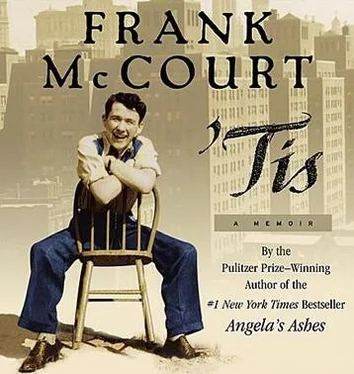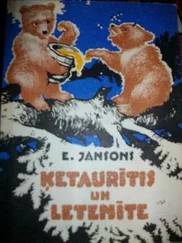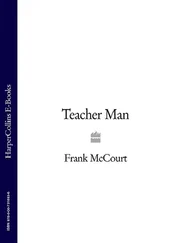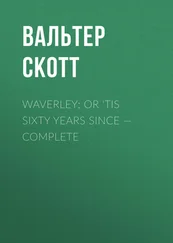Frank McCourt - 'Tis
Здесь есть возможность читать онлайн «Frank McCourt - 'Tis» весь текст электронной книги совершенно бесплатно (целиком полную версию без сокращений). В некоторых случаях можно слушать аудио, скачать через торрент в формате fb2 и присутствует краткое содержание. Жанр: Старинная литература, на английском языке. Описание произведения, (предисловие) а так же отзывы посетителей доступны на портале библиотеки ЛибКат.
- Название:'Tis
- Автор:
- Жанр:
- Год:неизвестен
- ISBN:нет данных
- Рейтинг книги:3 / 5. Голосов: 1
-
Избранное:Добавить в избранное
- Отзывы:
-
Ваша оценка:
- 60
- 1
- 2
- 3
- 4
- 5
'Tis: краткое содержание, описание и аннотация
Предлагаем к чтению аннотацию, описание, краткое содержание или предисловие (зависит от того, что написал сам автор книги «'Tis»). Если вы не нашли необходимую информацию о книге — напишите в комментариях, мы постараемся отыскать её.
'Tis — читать онлайн бесплатно полную книгу (весь текст) целиком
Ниже представлен текст книги, разбитый по страницам. Система сохранения места последней прочитанной страницы, позволяет с удобством читать онлайн бесплатно книгу «'Tis», без необходимости каждый раз заново искать на чём Вы остановились. Поставьте закладку, и сможете в любой момент перейти на страницу, на которой закончили чтение.
Интервал:
Закладка:
Christ Almighty, said Collins, this is your goddam wedding night, McCourt. Where is your bride? Where is mine?
We climbed the stairs to my apartment, found a six-pack of Schlitz in the refrigerator, sat on the couch, the two of us, and watched television Indians drop from the bullets of John Wayne.
46
In the summer of 1963 Mam called to say she had a letter from my father. He claimed he was a new man, that he hadn’t had a drink in three years and worked now as a chef in a monastery.
I told her if my father was a monastery chef the monks must have been on a permanent fast.
She didn’t laugh and that said she was troubled. She read from the letter where he said he was coming with a three-week return ticket on the Queen Mary and how he looked forward to the day when we could all be together again, he and she sharing a bed and a grave for he knew and she knew that whatever God hath joined let no man put asunder.
She sounded uncertain. What should she do? Malachy had already told her, Why not? She wanted to know what I thought. I put it back to her. What do you think? After all, this was the man who put her through hell in New York and Limerick and now he wants to sail to her side, a safe harbor in Brooklyn.
I don’t know what to do, she said.
She didn’t know what to do because she was lonely in that dingy place on Flatbush Avenue and she was now illustrating that Irish saying, Contention is better than loneliness. She could take back this man or, at fifty-five, face the years alone. I told her I’d meet her for coffee at Junior’s Restaurant.
She was there before me, puffing and gasping on a strong American cigarette. No, she wouldn’t have tea. The Americans can send a man into space but they can’t make a decent cup of tea, so she’d have coffee and some of that nice cheesecake. She drew on the cigarette, sipped the coffee and told me she didn’t know under God what to do. She said the whole family was falling apart with Malachy separated from his wife, Linda, and the two small children, Michael off to California with his wife, Donna, and their child, Alphie disappeared into the Bronx. She said she could have a nice life for herself in Brooklyn with the bingo and the odd meeting of the Limerick Ladies’ Association in Manhattan and why should she let the man from Belfast upset that life.
I drank my coffee and ate my strudel knowing she’d never admit she was lonely though she might have been thinking, Ah, sure if it wasn’t for the drink he wouldn’t be bad to live with at all, at all.
I told her what I was thinking. Well, she said, he’d be company for me if he’s not drinking, if he’s a new man. We could take walks in Prospect Park and he could meet me after the bingo.
All right. Tell him to come for the three weeks and we’ll see if he’s a new man.
On the way back to her apartment she stopped often to press her hand against her chest. ’Tis my heart, she said, going a mile a minute so ’tis.
It must be the cigarettes.
Oh, I don’t know.
Then it must be nervousness over that letter.
Oh, I don’t know. I just don’t know.
At her door I kissed her cold cheek and watched her gasping her way upstairs. My father had put years on her.
When Mam and Malachy went to meet the new man at the pier he arrived so drunk he had to be helped off the ship. The purser told them he had gone wild with the drink and had to be kept in restraint.
I was away that day and when I returned I took the subway to see him at Mam’s apartment but he had gone with Malachy to a meeting of Alcoholics Anonymous. We drank tea and waited. She said again she didn’t know under God what to do. He was the same lunatic with the drink and all that talk about being a new man was a lie and she was glad he had a three-week return ticket. Still, there was a darkness in her eyes that told me she must have had hopes of a normal family, her man by her side with sons and grandchildren coming to her from all over New York.
They returned from the meeting, Malachy big, red-bearded and sober because of his troubles, my father older and smaller. Malachy had tea. My father said, Och, no, and lay on the couch with his hands joined under his head. Malachy left his tea to stand over him and lecture him. You have to admit you’re an alcoholic. That’s the first step.
Dad shook his head.
Why are you shaking your head? You are an alcoholic and you have to admit it.
Och, no. I’m not an alcoholic like those poor people at the meeting. I don’t drink kerosene.
Malachy threw up his hands and returned to his tea at the table. We didn’t know what to say to each other in the presence of this man on the couch, husband, father. I had my memories of him, mornings by the fire in Limerick, his stories and songs, his cleanliness, neatness and sense of order, the way he helped us with our schoolwork, his insistence on obedience and attention to our religious duties, all destroyed by his payday madness when he threw his money around the pubs buying pints for every hanger-on while my mother despaired by the fire knowing the next day she’d have to stick her hand out for charity.
I knew in the days that followed that if blood called to blood I’d drift to my father’s side of the family. My mother’s people had often said in Limerick I had the odd manner of my father and a strong streak of the North in my character. They may have been right because whenever I went to Belfast I felt at home.
The night before he left he asked if we’d like to go for a walk. Mam and Malachy said no, they were tired. They had spent more time with him than I and must have been weary of his shenanigans. I said yes because this was my father and I was a nine-year-old thirty-three-year-old.
He put on his cap and we walked down Flatbush Avenue. Och, he said, it’s a very warm kind of a night.
’Tis.
Very warm, he said. You’d be in danger of drying up on a night like this.
Ahead of us was the Long Island Railroad Station ringed with bars for the thirsty commuters. I asked if he remembered the bars.
Och, he said, why should I remember such places?
Because you drank in them and we searched for you.
Och, well, I might have worked in one or two when times were hard for the bread and meat they gave me to take home to you childer.
He remarked again on the heat of the night and surely it wouldn’t do us any harm to cool ourselves in one of these places.
I thought you didn’t drink.
That’s right. Gave it up.
Well, what about the ship? You had to be carried off.
Och, that was the seasickness. We’ll have something here for the coolness.
While we drank our beer he told me my mother was a fine woman and I should be good to her, that Malachy was a fine big lad though you’d hardly know him with that red beard and where did it come from, that he was sorry to hear I had married a Protestant though it wasn’t too late for her to convert nice girl that she was and he was happy to hear I was a teacher like all his sisters in the North and would there be any harm in having another beer?
No, there wouldn’t be any harm and there wasn’t any harm in the beers we had up and down Flatbush Avenue and when we arrived back at my mother’s apartment I left him at the door because I didn’t want to see the looks on the faces of Mam and Malachy that would accuse me of leading my father astray or vice versa. He wanted to continue the drinking up toward Grand Army Plaza but my guilt told me to say no. He was supposed to leave next day on the Queen Mary though he hoped my mother would say, Ah, stay. Sure we’ll find some way of getting along.
I said that would be lovely and he said we’d all be together again and things would be better because he was a new man. We shook hands and I left.
Читать дальшеИнтервал:
Закладка:
Похожие книги на «'Tis»
Представляем Вашему вниманию похожие книги на «'Tis» списком для выбора. Мы отобрали схожую по названию и смыслу литературу в надежде предоставить читателям больше вариантов отыскать новые, интересные, ещё непрочитанные произведения.
Обсуждение, отзывы о книге «'Tis» и просто собственные мнения читателей. Оставьте ваши комментарии, напишите, что Вы думаете о произведении, его смысле или главных героях. Укажите что конкретно понравилось, а что нет, и почему Вы так считаете.












